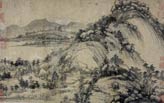Books
'Midwife' of Chinese literature prized for his work on woman author
Updated: 2011-06-17 07:37
By Liu Jun (China Daily)
Professor Howard Goldblatt, hailed as the "midwife" of contemporary Chinese literature by John Updike, was sweating when he received the Xiao Hong Research Award on June 3, in Harbin, for his contribution in refocusing attention on the long-neglected author.
"I am not someone who wins prizes; I am someone who plays a modest role in helping writers win prizes," Goldblatt responds in an e-mail interview.
"Professor Goldblatt is without doubt the most important person regarding the spread of Chinese literature," literary critic Chen Xiaoming says, adding that Goldblatt has translated the most Chinese literary works of the highest quality.
Goldblatt says he has translated, on his own or with a co-translator, more than 50 novels and collections of short stories. Of all the authors he has translated, Goldblatt says Xiao holds a special position.
"I've never 'divorced' Xiao Hong," he jokes with friends.
At Indiana University, Goldblatt's doctorate mentor was Liu Wuji, son of Liu Yazi (1887-1958), who was Chairman Mao Zedong's teacher and also a friend of Xiao.
Goldblatt has translated most of Xiao Hong's works, which have brought renewed interest in the writer around the world.
In 1980, Goldblatt was overjoyed to read the name Xiao Jun in a newspaper, for he thought that few writers of Xiao Hong's time had survived the "cultural revolution" (1966-1976). He wrote a letter to the Beijing Writers' Association, without much hope of getting an answer.
When Xiao Jun replied a month later, Goldblatt said in an interview with the Southern Weekly that he nearly fainted.
That year, Goldblatt visited the mainland for the first time. Veteran writer Xiao Qian (1910-1999) invited him to a Peking duck restaurant, where he was astonished to see many writers who had met Xiao Hong in person.
The Chinese Writers' Association helped him fulfill his dream of visiting Xiao's hometown, when most parts of the country were still off limits to foreigners.
At the airport, Goldblatt saw the words "Ha-er-bin" on the terminal building, and tears started rolling down his cheeks.
He visited all the places where Xiao had been and treasures a book by researcher Wang Guanquan on his beloved writer. He went to a lot of trouble to get autographs of Xiao's acquaintances for the book.
In Goldblatt's view, much of Xiao's writing is timeless. Her deft narrative strategies, the deceptive simplicity of her language and the artist-inspired imagery of her prose appeals to foreign audiences as well as contemporary authors - many of whom admit Xiao was a big influence.
While she is known primarily for her novels The Field of Life and Death and Tales of Hulan River, the biting satire of the unfinished Ma Bole stands alone as a work of trenchant criticism of human nature.
Perhaps her most neglected work, a series of vignettes Goldblatt calls pure autobiography, Market Street, is almost Joycean in its depiction of the minutiae of life among the laboring class of Harbin in the early 20th century.
Xiao was a prodigious writer, Goldblatt says, despite having a short life.
"She ranks with Lao She (1899-1966) as one of the two greatest novelists in the first half of the 20th century," Goldblatt says, "given the fact that more biographies of her have been written, it seems, than all other writers of the period except for Lu Xun. She is still among the most popular."
She remains a focus of his work, primarily as a translator, after nearly 40 years.
At the recent Harbin ceremony, Goldblatt presented to the National Museum of Modern Chinese Literature in Beijing a cache of taped interviews he undertook in the early 1980s with Xiao Jun, Duanmu Hongliang, Ding Ling and several of Xiao's other friends and contemporaries, in order to foster further research on writers in Northeast China, especially Xiao.
China Daily
(China Daily 06/17/2011 page19)
Specials

When two are one
After a separation of 360 years, Huang Gongwang's famous Dwelling in the Fuchun Mountains has been made whole again.

Wealth of difference
Rich coastal areas offer contrasting ways of dealing with country's development

Seal of approval
The dying tradition of seal engraving has now become a UNIVERSITY major